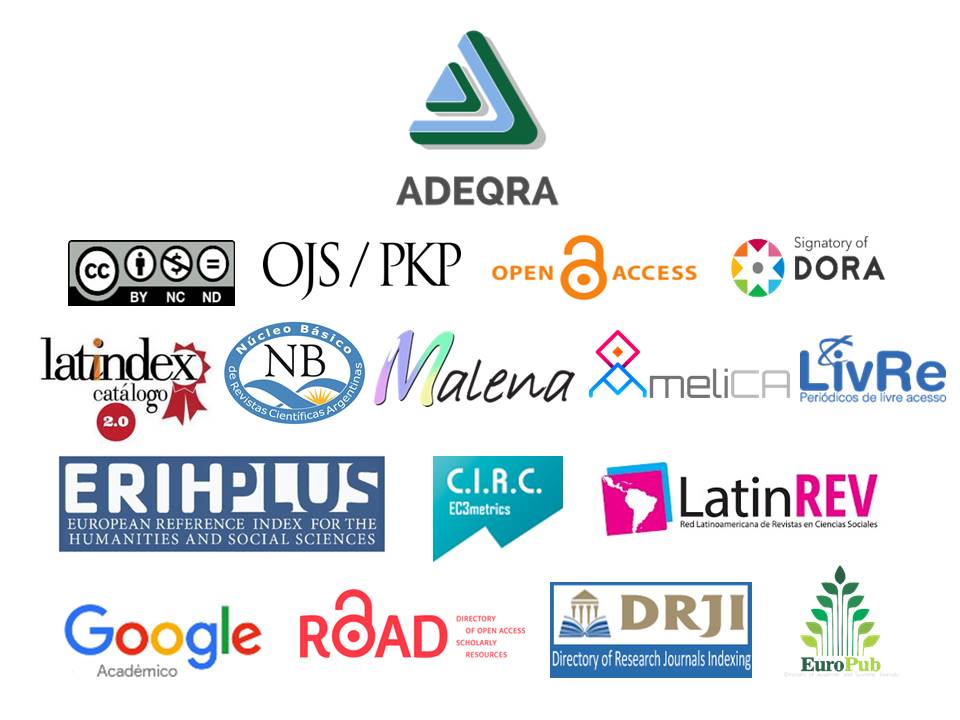Desarrollo del Conocimiento Didáctico del Contenido en la formación inicial de profesores de química. Un análisis centrado en los procesos reflexivos
Palabras clave:
Conocimiento Didáctico del Contenido, Modelo Interconectado para el Conocimiento Profesional Docente, reflexión, químicaResumen
En el presente trabajo se estudia cómo una profesora en formación de Química de la Universidad Nacional de Mar del Plata (UNMdP en adelante) desarrolla algunos componentes del Conocimiento Didáctico del Contenido (CDC en adelante) mediante procesos reflexivos iterativos. El seguimiento se realizó aplicando el Modelo Interconectado para el Conocimiento Profesional Docente (MICPD en adelante), y se analizaron las reflexiones y promulgaciones promovidas mediante diferentes dispositivos diseñados para tal fin. El trayecto formativo de análisis comprende la cursada cuatrimestral de la asignatura Didáctica de la Química y el comienzo de la asignatura Práctica de la Enseñanza I, también cuatrimestral. Se buscó identificar cambios que reflejasen desarrollo en el conocimiento profesional de la profesora en formación, y en una etapa posterior se interpretaron los mismos desde algunos componentes del CDC. El análisis de los datos se desarrolló a partir de la identificación de regularidades o patrones y divergencias en los diferentes registros.
Citas
Aydin, S., Friedrichsen, P., Boz, Y. y Hanuscin, D.L. (2014). Examination of the Topic-Specific Nature of Pedagogical Content Knowledge in Teaching Electrochemical Cells and Nuclear Reactions. Chemistry Education Research and Practice, 15 (4), 658-674. https://doi.org/10.1039/C4RP00105B
Bolívar, A. (2005). Conocimiento didáctico del contenido y didácticas específicas. Profesorado. Revista de currículum y formación del profesorado, 9(2).
Carr, W. (1990). Cambio educativo y desarrollo profesional. Revista Investigación en la Escuela, 11, 3-11.
Clarke, D. y Hollingsworthb, H. (2002). Elaborating a model of teacher professional growth. Teaching and Teacher Education, 18(8), 947-967. https://doi.org/10.1016/S0742-051X(02)00053-7
Cooper, R. y Van Driel, J. (2019). Developing Research on PCK as a Community. En A. Hume, R. Cooper, y A. Borowski (Eds.), Repositioning Pedagogical Content Knowledge in Teachers´ Knowledge for Teaching Science (pp.201-221). Springer.
Guskey, T. R. (2002). Professional Development and Teacher Change. Teachers and Teaching: Theory and Practice, 8(3), 381-391. https://doi.org/10.1080/135406002100000512
Justi, R. y Van Driel, J. (2006). The use of the Interconnected Model of Teacher Professional Growth for understanding the development of science teachers’ knowledge on models and modelling. Teaching and Teacher Education, 22(4), 437-450. https://doi.org/10.1016/j.tate.2005.11.011
Loughran, J., Milroy, P., Berry, A., Gunstone, R. y Mulhall, P. (2001). Documenting science teachers’ pedagogical content knowledge through PaP-eRs. Research in Science Education, 31, 289-307. https://doi.org/10.1023/A:1013124409567
Magnusson, S., Krajcik, J. y Borko H. (1999). Nature, Sources and development of Pedagogical Content Knowledge for Science Teaching. En J. Gess-Newsome y N. G. Lederman (Eds.), PCK and Science Education, (pp.95-132). Kluwer Academic Publishers.
Parga Lozano, D. y Mora Penagos, W. (2017). El CDC en química: una línea de investigación y de relaciones con la práctica docente. Enseñanza de las Ciencias, Extra, 97-102.
Parga Lozano, D. L., Mora Penagos, W. M., Martínez Pérez, L. F., Ariza Ariza, L. G., Rodríguez Hernández, B., López Castillo, J., Gómez Poveda, Y. y Jurado Arcos, R. (2015). El conocimiento didáctico del contenido (CDC) en química (1ra edición). Universidad Pedagógica Nacional.
Park, S. y Oliver, J. (2008). Revisiting the Conceptualisation of Pedagogical Content Knowledge (PCK): PCK as a Conceptual Tool to Understand Teachers as Professionals. Research in Science Education, 38(3), 261 – 284. https://doi.org/10.1007/s11165-007-9049-6
Park, S. y Chen, Y. (2012). Mapping Out the Integration of the Components of Pedagogical Content Knowledge (PCK): Examples from High School Biology Classrooms. Teaching y Learning. Journal of Research in Science Teaching, 49(7), 922-941. https://doi.org/10.1002/tea.21022
Ravanal Moreno, E. (2016). Consideraciones para un Programa de Desarrollo Profesional que orienta al Profesor a reconceptualizar su Enseñanza. Revista Científica, 28(1), 60-71. https://doi.org/10.14483/udistrital.jour.RC.2017.28.a5
Rollnick, M. y Mavhunga, E. (2014). PCK of teaching electrochemistry in chemistry teachers: A case in Johannesburg, Gauteng Province, South Africa. Educación Química, 25(3), 354-362. https://doi.org/10.1016/S0187-893X(14)70551-8
Shulman, L. S. (1986). Those who understand: Knowledge growth in teaching. Educational Researcher, 15(2), 4-14. https://doi.org/10.2307/1175860
Zwart, R. C., Wubbels, T., Bergen, T. C. M. y Bolhuis, S. (2007). Experienced teacher learning within the context of reciprocal peer coaching. Teachers and Teaching: theory and practice, 13(2), 165-187. https://doi.org/10.1080/13540600601152520
Publicado
Cómo citar
Número
Sección
Licencia
Derechos de autor 2023 María Fernanda Echeverría

Esta obra está bajo una licencia internacional Creative Commons Atribución-NoComercial-SinDerivadas 4.0.



